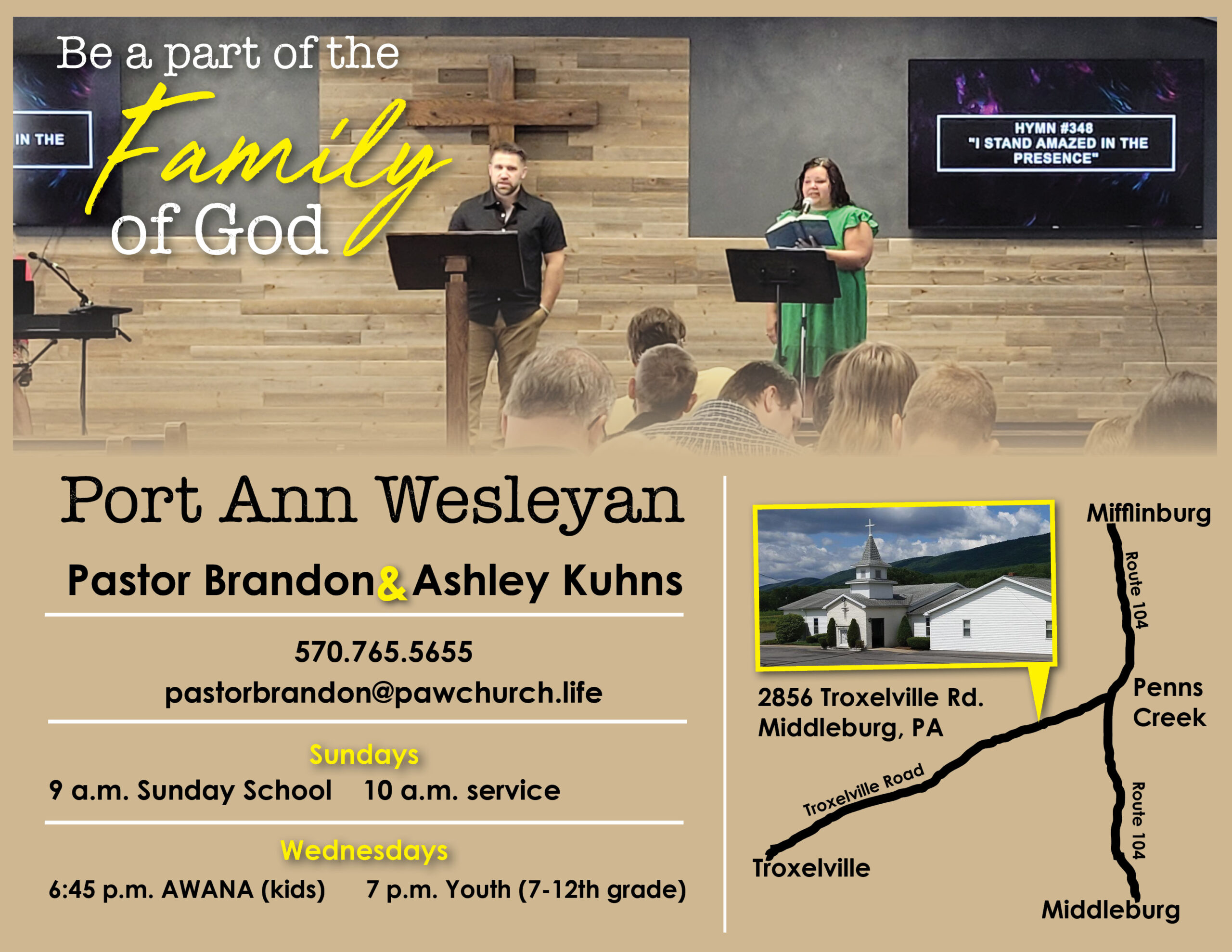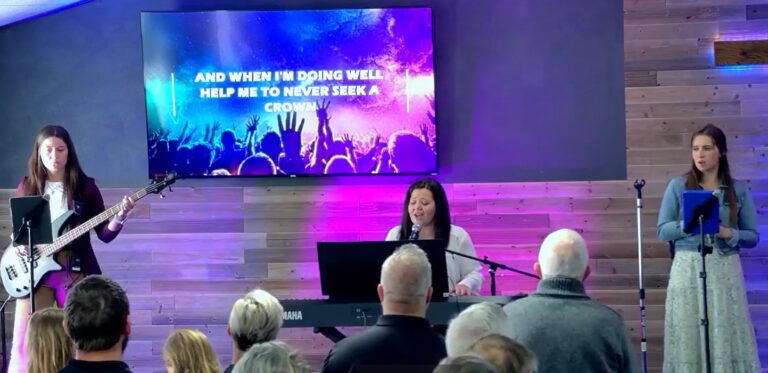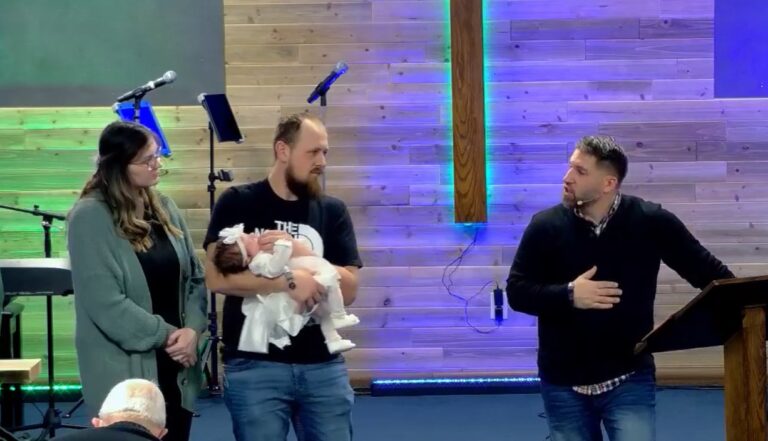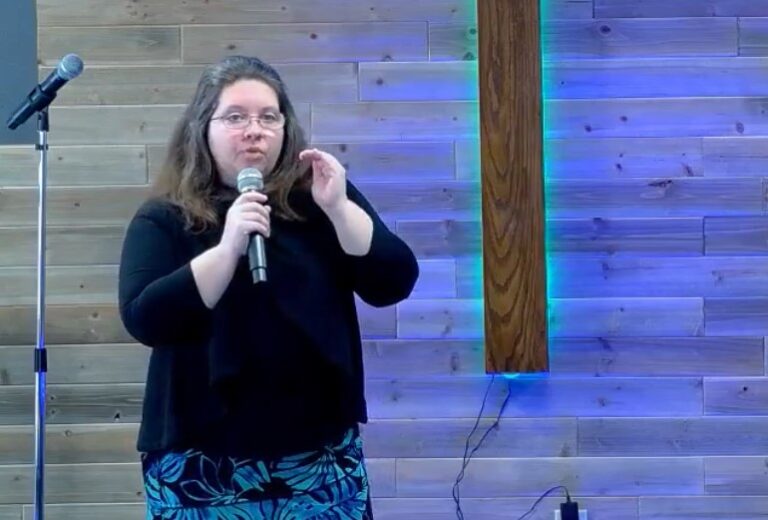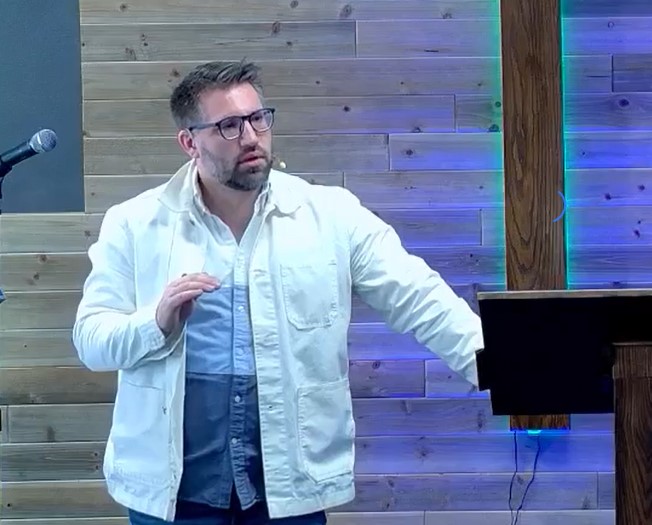Welcome to this week’s online youth lesson. We did not have youth group last week, but if you want to catch up with previous lessons, click here.
Kicking off this week with a song we have returned to so many times, but speaks so many important truths for those of us who have been imperfect, but not defined by those mistakes:
Prayer needs continue for a variety of families, including the Keister/Bowersox/Kuhns family still struggling to cope with the loss of Ashlynn. Also, please remember Jim Mulaney as he deals with cancer. And Pastor Paul Sheets as he prepares for the next chapter in his life.
We can also share praises for VBS, which brought in more than 20 kids to our church to learn more about God.
Please be praying for summer camp programs, starting with youth camp, coming soon, followed by family camp.
—
We have all experienced a time when someone else has disappointed us. Sometimes, the disappointment comes from someone we may only vaguely know. However, the most painful moments of being let down by people usually come from those who we know pretty well. When a loved one, friend or someone else we have known a while let us down, it can be hard to know how to handle that.
Our family is currently dealing with a situation along these lines, and while I can’t get into details at this time, it really has led to renewed thinking on the topic. How many times should we let someone burn us before we walk away? Is there a certain point where forgiveness is not an option and we sever ties completely?
The prayer and thought on this topic keeps coming back to two parables. The first involves the “prodigal” or “lost” son. Let’s look over the story as shared in Luke 15:11-24 (NIV):
Jesus continued: “There was a man who had two sons. The younger one said to his father, ‘Father, give me my share of the estate.’ So he divided his property between them.
“Not long after that, the younger son got together all he had, set off for a distant country and there squandered his wealth in wild living. After he had spent everything, there was a severe famine in that whole country, and he began to be in need. So he went and hired himself out to a citizen of that country, who sent him to his fields to feed pigs. He longed to fill his stomach with the pods that the pigs were eating, but no one gave him anything.
“When he came to his senses, he said, ‘How many of my father’s hired servants have food to spare, and here I am starving to death! I will set out and go back to my father and say to him: Father, I have sinned against heaven and against you. I am no longer worthy to be called your son; make me like one of your hired servants.’ So he got up and went to his father.
“But while he was still a long way off, his father saw him and was filled with compassion for him; he ran to his son, threw his arms around him and kissed him.
“The son said to him, ‘Father, I have sinned against heaven and against you. I am no longer worthy to be called your son.’
“But the father said to his servants, ‘Quick! Bring the best robe and put it on him. Put a ring on his finger and sandals on his feet. Bring the fattened calf and kill it. Let’s have a feast and celebrate. For this son of mine was dead and is alive again; he was lost and is found.’ So they began to celebrate.
This is a story many of us know and have reviewed many times before, but, let’s look at it in a different light. Consider the following points:
In the beginning of the story, the young son asks his father for his half of dad’s inheritance. We don’t know what the father’s response is to that request. This isn’t something that normally would happen until the father was close to dying. I can envision most dads refusing, or lecturing the younger son on the dangers of blowing all his money. Instead, we simply see the father granting the younger son his wish and letting him sink or swim on his own, so to speak.
The younger son is quick to blow it all, and experiences real hardships. He falls so far, he is eating with the pigs, and remembers all that he had with his father. He returns offering to be a servant, but instead the father welcomes him with open arms. No “I told you so.” No finger-pointing. Maybe that came later.
Ultimately, I would assume that this younger son had a rap sheet of poor choices beforehand. Not too often do people who are walking a straight line suddenly jump off the rails by requesting their inheritance and fleeing home. And yet, the father’s reaction and response throughout this story shows a certain amount of patience and instant forgiveness.
It goes beyond that. Despite the younger son blowing half of his father’s inheritance, the father is so overjoyed at his son’s return, that he throws a party, sacrificing their prize calf.
What can we learn from the father’s standpoint during this story that we can use in our own relationships with people who may have wandered off course or have hurt us in some way?
The second parable that has been resonating with me lately is the one involving an unmerciful servant. This story can be found in Matthew 18:21-35 (NIV):
Then Peter came to Jesus and asked, “Lord, how many times shall I forgive my brother or sister who sins against me? Up to seven times?”
Jesus answered, “I tell you, not seven times, but seventy-seven times.
“Therefore, the kingdom of heaven is like a king who wanted to settle accounts with his servants. As he began the settlement, a man who owed him ten thousand bags of gold was brought to him. Since he was not able to pay, the master ordered that he and his wife and his children and all that he had be sold to repay the debt.
“At this the servant fell on his knees before him. ‘Be patient with me,’ he begged, ‘and I will pay back everything.’ The servant’s master took pity on him, canceled the debt and let him go.
“But when that servant went out, he found one of his fellow servants who owed him a hundred silver coins. He grabbed him and began to choke him. ‘Pay back what you owe me!’ he demanded.
“His fellow servant fell to his knees and begged him, ‘Be patient with me, and I will pay it back.’
“But he refused. Instead, he went off and had the man thrown into prison until he could pay the debt. When the other servants saw what had happened, they were outraged and went and told their master everything that had happened.
“Then the master called the servant in. ‘You wicked servant,’ he said, ‘I canceled all that debt of yours because you begged me to. Shouldn’t you have had mercy on your fellow servant just as I had on you?’ In anger his master handed him over to the jailers to be tortured, until he should pay back all he owed.
“This is how my heavenly Father will treat each of you unless you forgive your brother or sister from your heart.”
Look closely at the first two lines. How often should we forgive someone who has hurt us? Peter and Jesus have an interesting dialogue about this. What can we take from this exchange when dealing with someone in our lives that has repeatedly let us down?
Jesus then goes on to illustrate his point with the rest of the parable. In a nut shell, the story talks about someone who needs forgiveness, and receives it, only to turn around and not give the same forgiveness to someone else.
When someone hurts us, we can be quick to struggle with that, and want to lash out and hold them accountable. We don’t usually focus on the big picture … that we ourselves have disappointed and hurt others in our lives and desperately sought their forgiveness. If we can’t turn around and do the same for a friend or loved one, what does that say about us?
Personally, the situation that our family is facing at the moment has been a good time to pray and reflect on some things. We are disappointed in the situation and the individual who has caused some strife, but we are not going to give up on this person. Why? For all the reasons outlined in those two parables, but also because being someone we know well, because we know this person’s true self beyond the mistakes. We see the potential and strive to see this person reach that potential regardless of how many hurdles and hiccups may come in the process.
I would imagine that is why God is so merciful with us. He knows our true heart, our innermost being. He sees the potential each of us have in our own lives to glorify Him and reach others. That being said, our time to get right with God is now. None of us know when that moment of no return may arrive.
What are your thoughts on all of this? Send us an email at zaktansky@gmail.com
